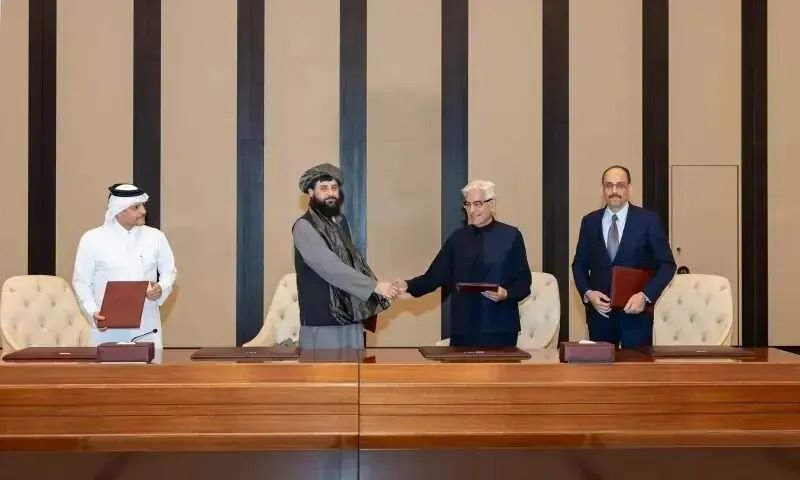Islamabad (TDI): Pakistan is hopeful that the new round of negotiations with Afghanistan, opening today in Istanbul, will result in the creation of a clear and verifiable system to track steps taken by the Afghan Taliban to prevent cross-border terrorist attacks.
At his first weekly press briefing, Foreign Office spokesperson Tahir Hussain Andrabi said, “Pakistan anticipates that the upcoming Istanbul meeting will lead to the establishment of a concrete and transparent monitoring mechanism to address terrorism threats originating from Afghan soil and to protect Pakistani lives.”
The Istanbul meeting comes after the Doha round of Pakistan-Afghanistan talks, jointly facilitated by Qatar and Turkiye on October 18–19, which produced a permanent ceasefire and an understanding to reconvene in Istanbul to develop a long-term framework for peace and stability.
Andrabi welcomed the Doha understanding, describing it as a “first step toward regional peace.” He noted that the truce has largely held since then, with no significant cross-border attacks reported.
Afghanistan’s interim administration also confirmed participation. The Afghan delegation, led by Mawlawi Rahmatullah Najeeb, Deputy Minister for Interior, departed Kabul for Istanbul to address “outstanding matters” with Pakistan.
Read More: Pakistan, Afghanistan Extend Ceasefire Ahead of Doha Talks
The Istanbul round is seen as a shift from temporary calm to an institutionalised peace framework, focusing on mechanisms for verification, monitoring, and technical-level dialogue. Turkish officials indicated that discussions will revolve around issues such as terrorism, migration, and border management.
While the Doha talks provided a political breakthrough, the Istanbul phase is expected to translate that understanding into operational measures, defining what constitutes cross-border terrorism, how violations will be verified, and how disputes will be resolved.
Pakistan is expected to press for firm and time-bound commitments from Kabul to neutralise TTP hideouts, arrest key figures, and dismantle safe houses. Proposals include intelligence sharing, real-time cross-border coordination, and surveillance of militant networks and funding channels.
Read More: Guns Fall Silent: Pakistan, Afghanistan Agree to 48-Hour Ceasefire
Islamabad also favours setting up a third-party monitoring body, possibly co-chaired by Turkiye and Qatar, to verify implementation and address instances of non-compliance, Dawn reported.
Other agenda points include ensuring Afghan assurances against harbouring hostile groups, improving border security, promoting financial transparency, and holding periodic review sessions to assess progress.
“The continuation of the ceasefire is proof of the progress achieved in Doha,” Andrabi said, expressing optimism that the positive momentum would continue beyond Istanbul.
On trade relations, however, the spokesperson confirmed that Afghan transit trade remains suspended. “The movement is halted due to security concerns. The suspension will continue until the situation is reassessed,” he explained.



